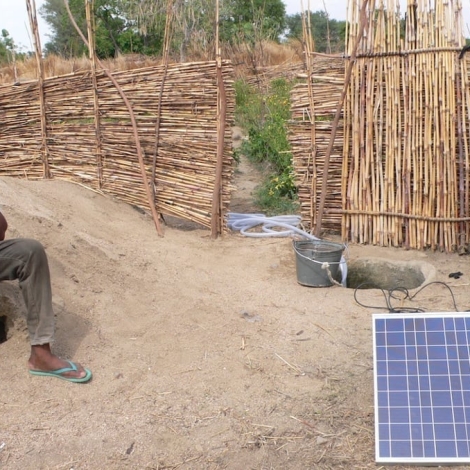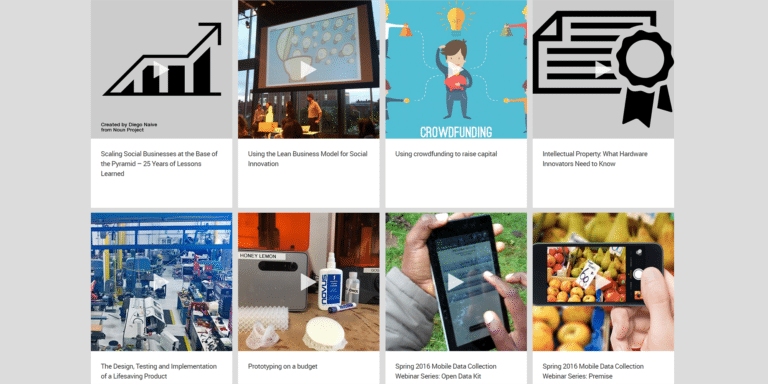
Sproxil protects patients against counterfeit drugs. Photo from E4C’s archive
IEEE’s Global Humanitarian Engineering Awards set a tone for the field of technology for global development this year honoring well-tested tools with the potential for broad appeal. The accolades go to the counterfeit drug stopper Sproxil and iDE’s crop irrigation systems, the awards committee announced recently.
Protecting the world from fake medicine
Ashifi Gogo, founder of Sproxil Inc., is IEEE’s Humanitarian Engineer of the Year. Sproxil curbs the spread of counterfeit drugs with a scratch-off code and a text message. Manufacturers tag their drug containers with the code, then consumers text the code from the drugstore counter when they make their purchase. An automatic “yes” or “no” response verifies the drug’s authenticity. Each code is unique and expires after one use to prevent copies.
The result is a drug verification service that’s as elegant as it is cheap. It costs less than other technologies used to fight drug fraud, such as holograms and RFID tags. And it is already stopping fraud. Sproxil has been used more than five million times in the last five years, protecting patients from buying fake drugs that don’t work.
That’s important because the fake drug trade is huge. Worldwide, counterfeiters may rake in $75 billion annually according to the US Center for Medicine in the Public Interest. About 60% of that occurs in developing countries, the WHO reports.
Sproxil does its work on the back of simple, popular SMS technology. With its low cost and ease of use, this system, or one like it, could become standard in developing countries.

iDE’s solar pump at work. Photo courtesy of the Global Humanitarian Engineering Awards
Low-cost agricultural tools for better living
IEEE’s Humanitarian Engineering Project of the Year goes to the agricultural product developer iDE. From its headquarters in Denver, Colorado, the organization designs and vets low-cost agricultural tools such as water pumps, storage containers and drip tape and other irrigation technologies for impoverished small-holder farmers. In its 30 years, iDE and the entrepreneurs it works with have sold more than 2.5 million irrigation devices in 12 developing countries. Better irrigation has paid off. Farmers who earn less than $4 per day have been able to increase their pay by $250 per year with iDE’s innovations.
Sproxil and iDE’s tools harness proven technology such as cell phones, treadle pumps and solar panels, and they have both shown their potential to sell widely and catch on. Those are powerful qualities in any type of technology.
Our field encourages invention, but that quality can also impede progress. We walk a line between our fascination with new things and the reliability of old, proven solutions. The Global Humanitarian Engineering Awards have made a statement by honoring these innovators who have made wise use of tested technologies.
Related resources
Trends, temptations and tweets at IEEE’s Global Humanitarian Technology Conference
GHTC showed us treetop telecoms, guerilla disaster response, the rise of geotags and the cloud in development and more. Here are the trends and take aways in humanitarian technology this year.
Promising inventions for global development at NCIIA’s Open Minds 2013
Low-cost earthquake-resistant housing, an SMS-based survey system, better greenhouses, vaccine storage containers and more… This is what happens when university students invent technology that improves lives.
For more efficient farm aid, think smaller
The old aid policies of the Green Revolution ignore advances in small-farm technology.

